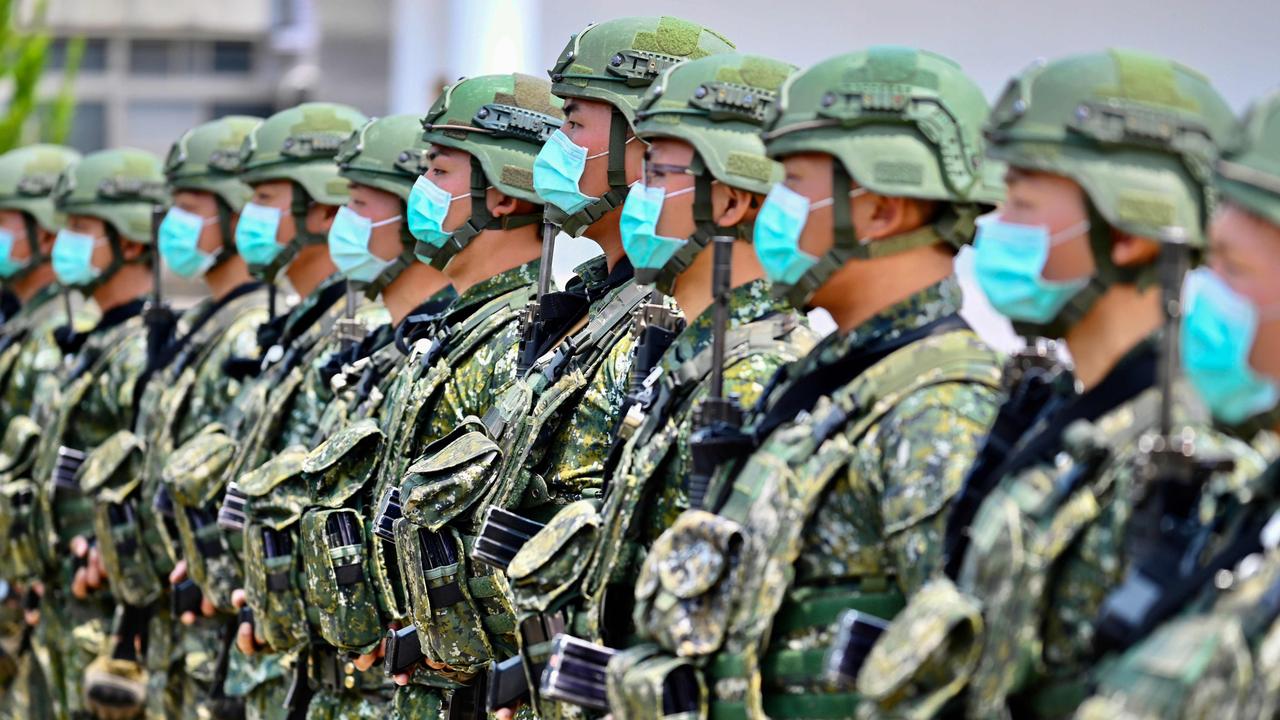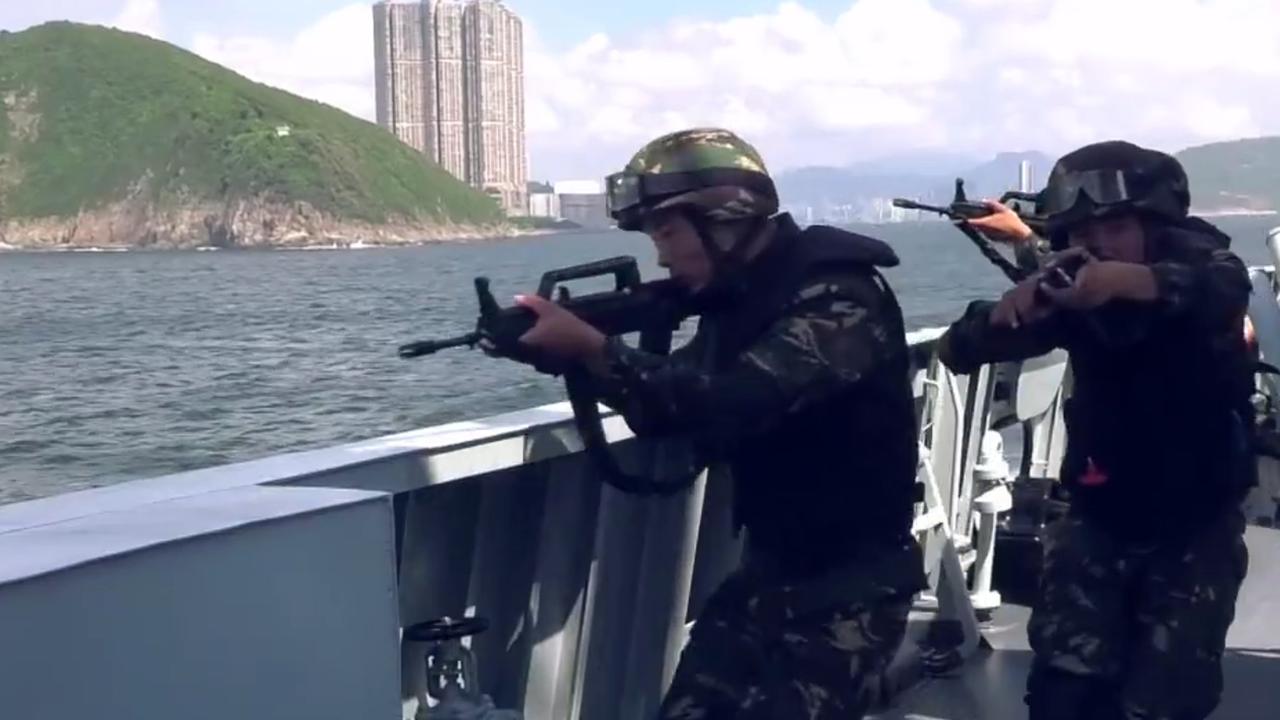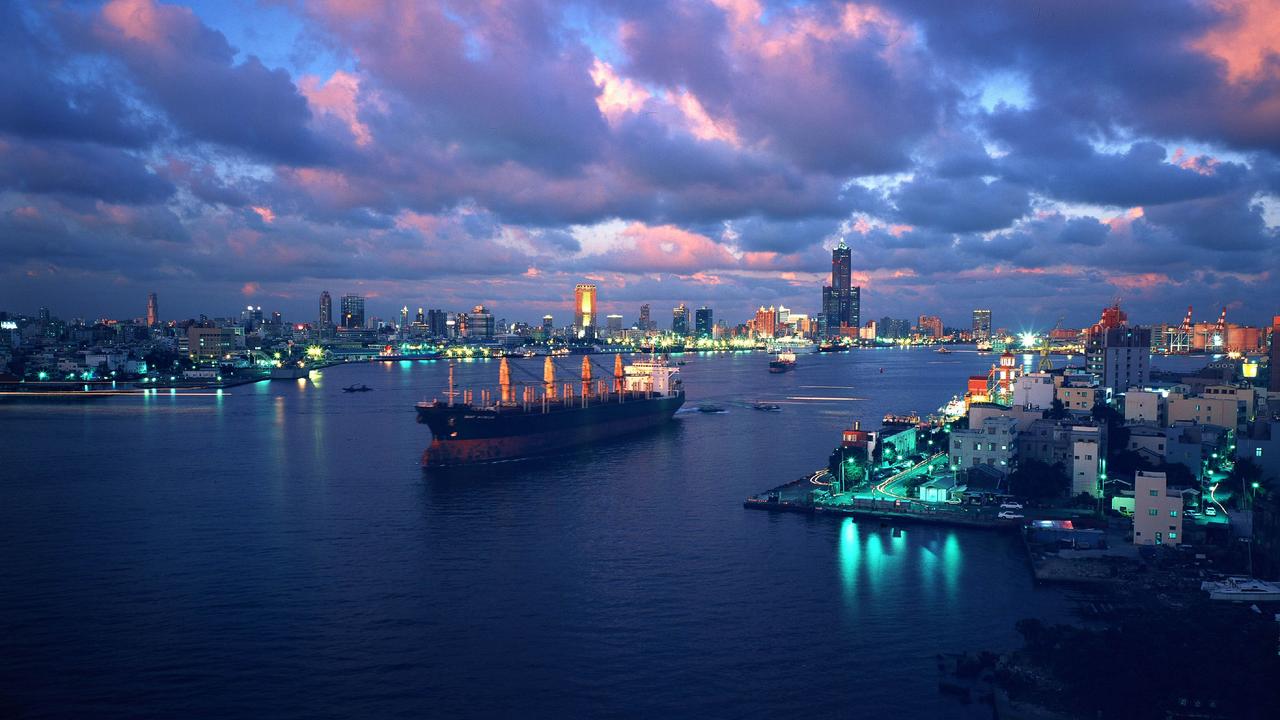How China will ‘break’ Taiwan with assassinations and cyberattacks — but no invasion
Rather than invade, China may try to “break” this tiny island through a brutal campaign including assassinations and cyberattacks.
China is unlikely to invade Taiwan but will use “all means short of war” to achieve reunification — including political assassinations, cyberattacks and even “stray” missiles into civilian areas — a new paper argues.
The chilling scenario is laid out in a policy brief from the China Matters think tank published on Tuesday, which argues that the long-held notion that the Chinese government would eventually “attack” Taiwan is an “outdated assumption”.
Instead, China under President Xi Jinping would force Taiwanese leadership to start negotiating through a “protracted and intensive campaign”, which the US and others including Australia would find “extremely difficult to counter”.
“No individual action by the People’s Republic of China would warrant a military response, but collectively they could allow Beijing to achieve its aim,” China Matters founding director Linda Jakobson writes, noting that this had been its approach in the South China Sea.
Taiwan, officially the Republic of China, never surrendered in 1949 after the civil war. The Chinese Communist Party officially views Taiwan as a rogue province and has long vowed to retake the self-governing island nation of 23 million people.
RELATED: China on brink of military crisis

Unlike former Chinese rulers, however, President Xi is “no longer prepared to leave unification of the mainland and Taiwan to future generations”, Ms Jakobson writes, and has “repeated his predecessors’ message that Beijing will not renounce the use of force to attain its goal”.
“These threats are credible,” she writes. “Unification is central to the legitimacy of the Communist Party of China and to Xi’s vision of the ‘China Dream’.”
Despite this, Beijing “does not want to fight a war over Taiwan”.
“A much more likely scenario entails step-by-step coercion of Taiwan — the use of ‘all means short of war’ — to destabilise Taiwanese society and force it to accept unification talks,” she writes.
PLAN FOR ‘UTTER CHAOS IN TAIWAN’
This campaign to “break the will” of Taiwan would include an “aggressive mix of new technologies and conventional methods”, from economic pressure to covert actions and the limited use of military force.
The paper, which was partly funded by the Australian government through a Department of Defence grant, outlines a detailed scenario in which China, rather than invade Taiwan, would “strive to create utter chaos in Taiwan and compel the government to accede to the PRC’s demands”.

RELATED: Worrying China move ‘threatens war’
“Initially, it would be impossible to credibly pinpoint who is behind many of the provocative actions,” Ms Jakobson writes.
“Few shots would be fired other than for possible political assassinations. Taiwan’s armed forces would struggle to counter Beijing’s actions. Barring strong condemnation of Beijing and imposing economic sanctions on the PRC, the US and others, including Australia, would find it difficult to assist Taiwan.”
China could then pressure major Taiwanese investors in China to sign a letter to the Taiwanese government calling for cross-Strait political talks — refusal to sign would result in “business difficulties”.
Beijing could then suddenly cut Taiwan’s air routes into China, forcing international airlines to choose between servicing the two countries.
Chinese warplanes, which have engaged in an escalating show of force over Taiwanese air space since US President Joe Biden’s inauguration, would “conduct incursions not only across the median line of the Taiwan Strait, as they do today, but over Taiwan itself”.
As tensions escalate, Taiwan’s stock market would plunge. The country’s ruling Democratic Progressive Party would come under pressure internally from PRC-backed media outlets and street protesters.

“Street gangs would attack independence supporters,” she writes. “Confrontations between opposing political groups could become violent.”
The most intense phase of the campaign would include a ramping up of disinformation efforts and a “barrage of sophisticated cyberattacks with the aim of first disrupting Taiwan’s electricity and telecommunications and then shutting them down”.
At the same time, the People’s Liberation Army would conduct “extensive” military exercises, and People’s Liberation Army Navy ships would sail close to Taiwan’s coast.
“During live-fire exercises, missiles would be fired in the direction of Taiwan,” Ms Jakobson writes.
“One of the missiles would ‘stray’ off course and cause civilian casualties in Taiwan. Meanwhile, tens of thousands of unarmed PRC fishermen would make their way across the Strait on a ‘Mission of Friendship’, trusting that Taiwan’s armed forces would not open fire on unarmed people. Some of the fishermen – many of them paramilitary in disguise – would be ‘invited’ ashore by Taiwanese who support Beijing.”
As rumours “run rampant through Taiwan’s darkened cities cut-off from communications”, the Chinese Navy would blockade Taiwan’s harbours and Beijing would demand governments shut down their representative offices in Taipei.
“The risk of miscalculation by either the PRC or the US would grow with every passing week and could lead to unintended armed conflict,” Ms Jakobsen writes. “The potential for war would loom large.”

AUSTRALIA NEEDS FRESH APPROACH
The paper argues that Australian leaders – in co-ordination with the ANZUS alliance – need fresh thinking to prepare for such an “all means short of war” scenario.
“What should Canberra do if Beijing shuts down the power and communication networks in Taiwan?” Ms Jakobsen writes.
“Would Australia ban exports of iron ore to the PRC? Canberra must decide how important Taiwan is as an independent entity. Is Canberra willing to suffer retaliatory measures far greater than the current ones being meted out by the PRC?”
The China Matters paper comes after a similar warning from the Australian Strategic Policy Institute, which argues Beijing may “trigger a major military crisis” this year to exploit COVID-19 and celebrate its centenary of Communism.
ASPI executive director Peter Jennings, speaking on a panel of experts invited to address the US Congress, said the President Xi stands to lose nothing if he keeps “testing the limits”.
“This gives rise, in my view, to a possible major crisis on Taiwan or the East China Sea in 2021,” Mr Jennings told the US-China Commission hearing last month.
“This does not have to involve a PLA amphibious assault of Taiwan’s northern beaches. But it could involve maritime blockades, closing airspace, cyber assaults, missile launchings around (and over) Taiwan, use of fifth column assets inside Taiwan, use of PLA force in a range of deniable grey-zone activities and potentially seizing offshore territory — Quemoy and Matsu, Pratas, and Kinmen Islands.”
Mr Jennings said Beijing would “continue to probe with military actions, test international reactions and probe again”.




